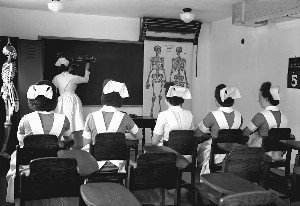Valentina Crestani
Semplificazione nei musei in <em>Leichte Sprache</em> tedesca e in <em>linguaggio facile</em> italiano
Introduction
Semplificazione nei musei in <em>leichte sprache</em> tedesca e in <em>linguaggio facile</em> italiano. Esplora la semplificazione museale con Leichte Sprache tedesca e linguaggio facile italiano. Analizza la determinologizzazione e le caratteristiche comuni tra le versioni.
Abstract
After offering a theoretical introduction to the principles of German Easy Language (“Leichte Sprache”) and Italian Easy Language (“linguaggio facile” italiano), the article focuses on their use in museum communication. The linguistic data analysed consist of two corpora: the first corpus includes a selection of German museum guides in “Leichte Sprache” and the corresponding standard language versions, while the second corpus collects a selection of Italian museum guides in “linguaggio facile” italiano and the standard language versions. The linguistic data are analysed from an intralinguistic perspective (comparison of standard and simplified language versions): the specific object of this analysis is the determinologization of specialised or otherwise difficult terms in the simplified version. The linguistic data are also analysed according to an interlinguistic perspective (comparison between guides in “Leichte Sprache” and guides in “linguaggio facile” italiano): the object of this analysis is the identification of common characteristics between the two language versions.
Review
This article presents a highly relevant and timely investigation into the application of simplified language principles, specifically German *Leichte Sprache* and Italian *linguaggio facile*, within the context of museum communication. The research design is commendably structured, featuring a dual-corpus approach that allows for both intralinguistic comparison (standard vs. simplified versions) and interlinguistic analysis across the two languages. The explicit focus on "determinologization"—the process of simplifying specialized or challenging terms—is particularly insightful, addressing a critical aspect of making cultural content accessible to a broader audience. The clear theoretical introduction preceding the empirical analysis further strengthens the paper's foundational contribution. While the abstract outlines a robust methodological approach, a few points could benefit from further elaboration in the full manuscript. It would be valuable to understand the precise criteria used for selecting the "selection of museum guides" for both corpora, ensuring their representativeness across different museum types (e.g., art, history, science) or target audiences. Additionally, while the determinologization of terms is a central focus, the abstract does not explicitly mention if other crucial simplification strategies—such as syntactic adjustments, discourse structuring, or overall lexical frequency—are also considered, which are often integral to effective easy language. Clarification on whether the "corresponding standard language versions" are original source texts that were simplified, or parallel texts, would also enhance the understanding of the comparative analysis. Overall, this study offers a significant contribution to the fields of applied linguistics, museum studies, and accessibility research. Its comparative nature across two distinct easy language frameworks provides valuable cross-cultural insights into simplification practices. The detailed linguistic analysis of determinologization promises to yield practical recommendations for museum educators and communicators seeking to enhance inclusivity. I anticipate this article will be of great interest to scholars and practitioners alike, and I highly recommend it for publication.
Full Text
You need to be logged in to view the full text and Download file of this article - Semplificazione nei musei in <em>Leichte Sprache</em> tedesca e in <em>linguaggio facile</em> italiano from mediAzioni .
Login to View Full Text And DownloadComments
You need to be logged in to post a comment.
Top Blogs by Rating
The Uncomfortable Truth: Why G...
By Sciaria
Andragogy: The Secret to Engag...
By Sciaria
Identical Twins Aren't Identic...
By Sciaria
Favorite Blog
The Silent Language of Your Bo...
By Sciaria
The Ethics of Deletion: Should...
By Sciaria
The Invisible Load: Unveiling...
By Sciaria





